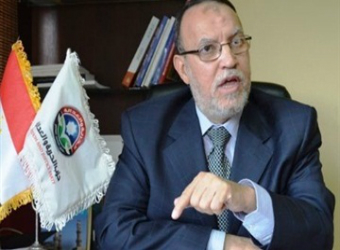Senior officials in Egypt’s Muslim Brotherhood have rejected a timetable for new elections laid out by interim president Adly Mansour.
Leading Brotherhood figure Essam al-Erian says the plan for constitutional changes and a vote next year “brings the country back to square one”.
President Mohammed Morsi was ousted by the army last week after mass protests.
The decree came hours after at least 51 people were killed at a Cairo barracks where his supporters say he is in held.
The Muslim Brotherhood – Egypt’s main Islamist movement, which Mr Morsi belongs to – says its members were fired on at a sit-in for the ousted leader. The army says it responded to an armed provocation.
Mr Morsi was Egypt’s first freely elected president. His removal last Wednesday followed protests by tens of thousands of people who accused him of becoming increasingly authoritarian, pursuing an Islamist agenda, and failing to tackle Egypt’s economic woes.
The Brotherhood has denounced the military’s action as a coup.
‘Invalid’
Mr Mansour’s decree, issued late on Monday, laid out plans to set up a panel to amend the suspended Islamist-drafted constitution within 15 days.
The changes would then be put to a referendum – to be organised within four months – which would pave the way for parliamentary elections, possibly in early 2014.
Once the new parliament convenes, elections would be called to appoint a new president.
Mr Erian, deputy chairman of the Brotherhood’s political wing, the Freedom and Justice Party (FJP), said the declaration was “a constitutional decree by a man appointed by putchists” which “brings the country back to square one”.
Ahmad Abu-Barakah, a legal adviser to the FJP, said the decree was “invalid and illegitimate”, the private Al-Misri al-Yawm news site reports.
The Brotherhood’s spokesman Gehad el-Haddad told AFP news agency that further protests and sit-ins would be held across the country on Tuesday, as funerals are held for supporters killed in Monday’s violence in Cairo.
Brotherhood supporters camping outside the Rabaa al-Adawiya mosque in north-east Cairo also expressed their anger.
“No-one voted for this president,” Ashraf Awad told the Associated Press news agency. “He is illegitimate in being sworn in, so all decisions he makes, people will not recognize.”
Another protester, Hamdi el-Said, said Mr Morsi remained his president. “I will defend my vote which I gave to him until I become a martyr like the people who were killed yesterday,” he said.
The movement has described what happened outside the Presidential Guard barracks on Monday as a “massacre”, and has called for “an uprising by the great people of Egypt against those trying to steal their revolution with tanks”.
It says the army raided a peaceful sit-in as protesters were performing dawn prayers, and that 53 people were killed.
The health ministry said at least 51 people were killed and 435 people wounded.
But army spokesman Col Ahmed Mohammed Ali said troops responded after a group armed with live ammunition, petrol bombs and stones attacked them.
He said that two police and one soldier were killed in the exchange of fire. Eight soldiers were critically wounded.
Col Ali also disputed claims that children had died, saying pictures of dead children posted on the internet were in fact images taken in Syria in March.
Appeal for calm
Mr Morsi is believed by the Brotherhood to be held at the barracks, but the military says he is elsewhere.
In response to the killings the grand sheikh of al-Azhar University, Ahmed al-Tayeb – seen as the highest authority in Sunni Islam – warned of civil war and said he was going into seclusion until the violence was over.
The hardline Salafist Nour party – which had supported Mr Morsi’s removal – said it was withdrawing from talks to choose an interim prime minister, describing the shooting incident as a “massacre”.
The killings follow an incident in the same location on Friday in which three people died and dozens were wounded as troops fired on crowds.
Mr Mansour has appealed for calm, and has ordered an investigation into the incident.
But the BBC’s Jim Muir in Cairo says situation on the streets of Egypt will have to improve radically if Mr Mansour’s timetable for elections is not to prove hopelessly unrealistic.
Source: BBC


